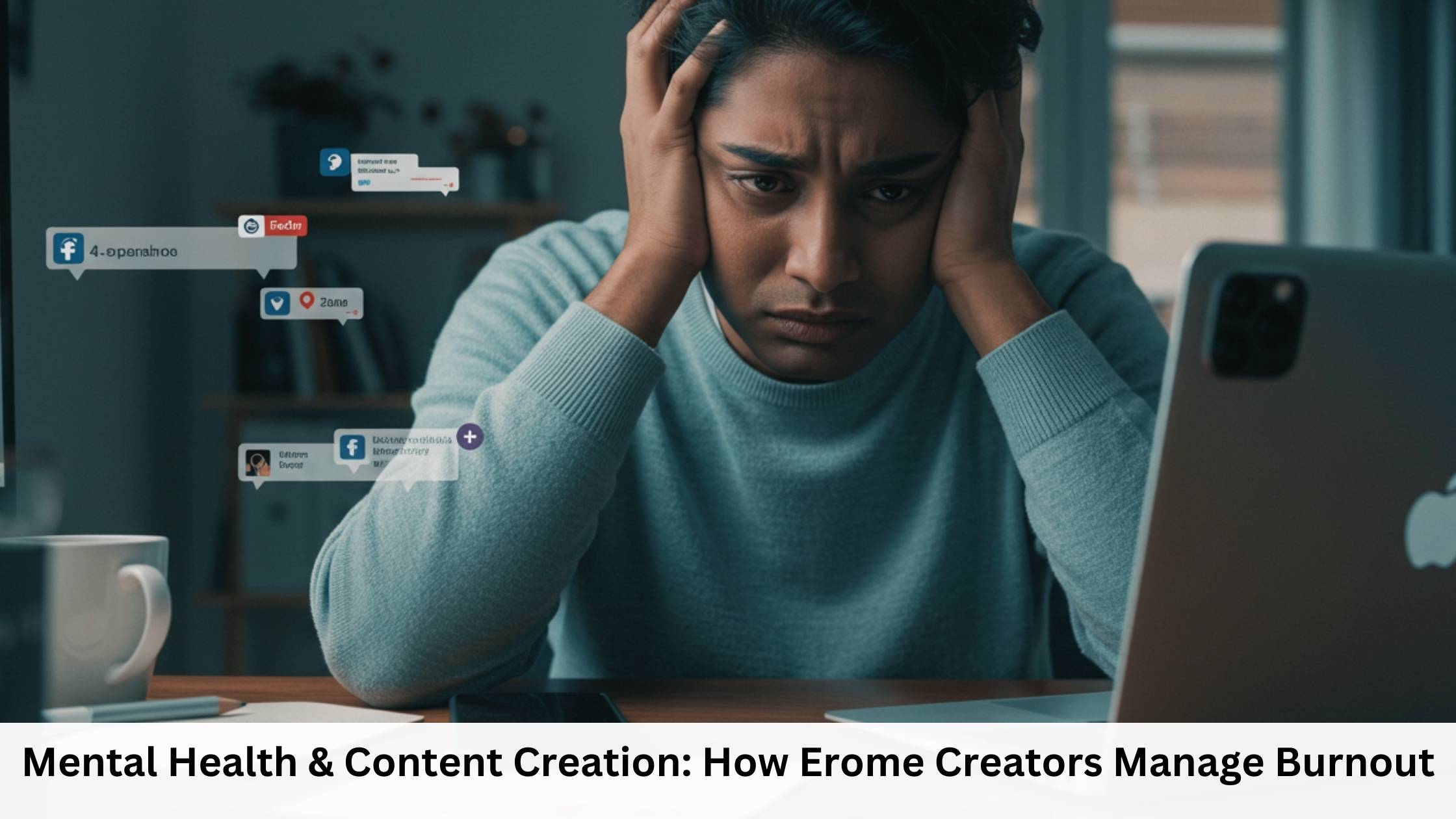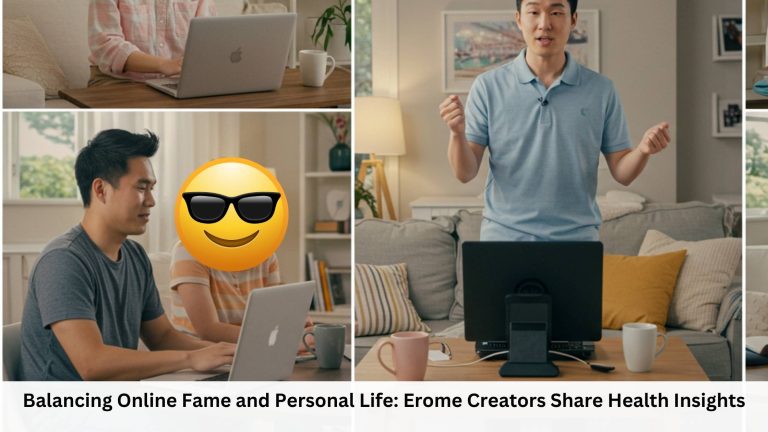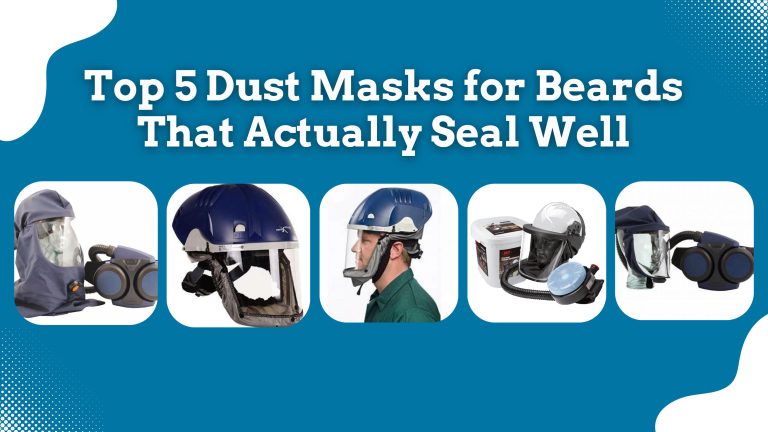
Why does something that once brought joy suddenly feel like a job you can’t quit? That’s a question many creators on visual sharing platforms ask themselves. There comes a point when managing a digital presence, creating visually appealing content consistently, and keeping up with audience expectations can stop feeling exciting and start becoming emotionally overwhelming.
It’s more than just being tired. The stress, isolation, and pressure to perform can take a toll on your mind. If you’re putting yourself out there daily—showing parts of your life, managing interactions, and constantly thinking about what’s next—it’s no surprise that mental health starts to take a hit.
Can You Create Without Burning Out?
The answer is yes—but only if you’re aware and intentional. The benefit of understanding mental health in content creation is that it gives you a chance to stay in the game longer, without losing your spark. When you’re in control of your schedule, boundaries, and emotional health, you not only produce better work—you also enjoy the process a whole lot more.
Let’s be real. The online world doesn’t slow down, and neither do the expectations. But creators who’ve learned to manage stress and burnout aren’t superhuman—they’ve just figured out how to balance visibility with recovery. The good news? Their methods are actually pretty relatable.
Why Are So Many Visual Creators Feeling the Pressure?
What Are the Common Stress Triggers?
The stress triggers aren’t always obvious. Here’s what some Erome creators have shared:
- Constant self-comparison: Seeing peers post more frequently or gain more traction makes it easy to feel like you’re falling behind.
- Audience demand: Once you build an audience, they expect regular updates.
- Platform algorithms: Algorithms reward consistency, punishing even short breaks.
- Creative fatigue: New ideas don’t come easily when your brain is tired.
- Online judgment: Critical comments—no matter how rare—can hit harder than likes.
The Unspoken Toll of Visibility
What often goes unspoken is the emotional cost of constantly being seen. Visibility is necessary, but it also means scrutiny. Having to maintain a specific image or niche adds pressure, especially for visual creators who rely heavily on their presence.
Real Numbers that Show the Reality
- A 2022 study by Digital Wellness Lab found that 71% of full-time digital creators reported signs of burnout.
- Around 56% felt pressure to be available 24/7.
- Only 12% had access to mental health support as part of their platform memberships.
How Do Successful Creators Balance Work and Wellness?
The Role of Personal Boundaries
Creators like Lina Fox, who gained a large following through expressive visual storytelling, speak openly about setting clear boundaries.
“I don’t check messages after 7pm anymore. At first, I felt guilty, but now I’m a better creator for it.” — Lina
Understanding When to Log Off
Taking time away from the screen is not about disappearing; it’s about recovery. Many creators schedule “offline days” into their week, using them to reset, read, spend time outdoors, or work on non-digital projects.
Having a Support System That Understands
Creators like Elio Trent from the Baddiehub network mention how talking to others who understand the space has helped him feel less alone.
“Other creators are the only people who really get it. We’ve got a private group chat and just vent sometimes. That’s helped more than therapy.” — Elio
Learn How Erome Supports Safe Content Creation and Viewer Protection
What Can You Do Today To Start Protecting Your Mental Health?
Create a Schedule That Includes Breaks
Your calendar shouldn’t only include filming and editing. Add blocks for rest, movement, and connection. Treat recovery as a non-negotiable part of your workday.
Turn Off Notifications
This one’s simple but powerful. Constant alerts create background stress. Turning them off doesn’t disconnect you from your audience—it just reconnects you to yourself.
Say “No” to Content That Feels Forced
Some creators get stuck posting things that no longer feel true to them. Give yourself permission to evolve. Authenticity builds loyal communities far better than trends.
Self-Care Actions and Their Emotional Impact
| Action | Emotional Benefit |
| Digital detox once a week | Reduced stress, improved mood |
| Joining creator support groups | Sense of belonging, reduced isolation |
| Journaling after shoots | Better self-reflection, emotional clarity |
| Taking breaks during editing | Reduced overwhelm, fewer headaches |
| Setting social limits | Improved relationships, energy retention |
Do Platform Features Add to or Reduce Stress?
Are Notifications and Analytics Helpful or Harmful?
Analytics and engagement stats can be both a motivator and a source of anxiety. While they help creators understand what works, they also trigger over-analysis. A single drop in viewership can lead to days of second-guessing your content.
How Modern Platforms Respond
Some platforms are beginning to recognize the importance of creator well-being. The Baddiehub creator interface, for instance, now includes features that allow users to schedule downtime, blur comments, or hide view counts temporarily. These adjustments, while small, can make a big difference.
Discover The Impact of Screen Time on Viewer Well-Being: What Erome Users Should Know
Is Perfectionism Killing Creativity?
Why Many Creators Struggle With “Good Enough”
The pursuit of visual perfection—whether through editing, lighting, or branding—can become exhausting. Many creators fall into the trap of revising content so many times that they end up missing their own deadlines.
A Personal Story of Letting Go
Raya Moore, who creates visual diary-style posts, shared how releasing her content without obsessing over every frame helped her reconnect with her joy.
“Once I stopped nitpicking every detail and just posted what felt real, not only did my engagement go up, but I felt better doing it.”
How Can You Handle Criticism Without Falling Apart?
Developing Emotional Distance
Creators need to learn the art of detachment. You are not your content. This simple shift can help you weather negative feedback without letting it stick.
Practical Tools That Help
- Use browser extensions to filter harmful language in comments.
- Have a trusted friend or manager vet messages when you’re feeling sensitive.
- Save positive feedback in a folder for rough days.
How Do Real-Life Habits Impact Digital Burnout?
Physical Wellness and Its Link to Online Creativity
It might sound too basic, but nutrition, sleep, and movement directly impact your mood and cognitive sharpness. Several creators reported improved productivity after switching to more structured sleep patterns and daily walks.
Why Therapy Isn’t Just for “Serious” Problems
Talking to a professional isn’t a weakness. Creators like Dylan Sky from Baddiehub mention how therapy helped him understand that validation doesn’t only come from numbers.
“It gave me back my own voice. I don’t need likes to know something matters.”
Should You Talk About Burnout With Your Audience?
When Vulnerability Builds Trust
Audiences today crave transparency. Sharing that you’re taking a break, or that you’re struggling, often leads to support instead of criticism. It also helps reduce the stigma around mental health.
A Thoughtful Way to Frame It
Instead of announcing burnout dramatically, share what you’re doing to care for yourself. Invite your audience to reflect on their own habits.
Conclusion: What Really Keeps Creators Going?
Managing burnout isn’t about doing less—it’s about doing what matters more. For Erome creators, the key lies in self-awareness, healthy habits, and having a real-life rhythm that balances the demands of digital creation.
You don’t need to grind endlessly to prove your worth. Creating is a form of expression, not a race. And when you protect your mental health, you protect your creativity too.
No matter where you are in your journey, remember this: you deserve to feel good about what you share and how you live. That balance is what truly sustains a long and meaningful creative career.






